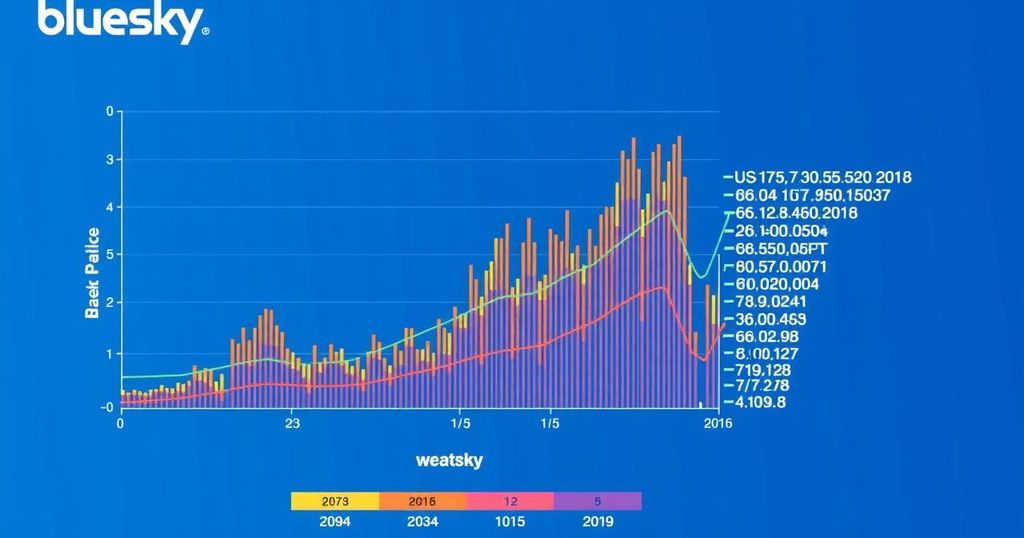Bluesky Experiences Surge in Users Post-U.S. Election as Dissatisfaction with X Grows

Bluesky has gained 700,000 new users in the week following the U.S. election, increasing its total membership from 9 million to 14.5 million. The shift is partly due to user dissatisfaction with X following Elon Musk’s support of President-elect Trump. Notable figures, including Congresswoman Alexandria Ocasio-Cortez, have also joined Bluesky, reflecting a trend of users seeking alternatives to existing platforms.
Bluesky, a social media platform originally envisioned by former Twitter CEO Jack Dorsey, has witnessed a significant influx of new users following the recent U.S. election. The platform’s membership surged from 9 million in September to 14.5 million as of November 12, reflecting an addition of approximately 700,000 users in the week post-election. This uptick is primarily attributed to dissatisfaction with X, the platform previously known as Twitter, following its owner Elon Musk’s support for President-elect Donald Trump, which has led to increased misinformation and offensive content on X. Prominent figures, including New York Congresswoman Alexandria Ocasio-Cortez, publicly expressed their enthusiasm about joining Bluesky, indicating a shift toward a more congenial online environment. This mass migration is not unprecedented; Bluesky noted previous spikes in user activity during other times of political unrest, suggesting that users are gravitating towards platforms that promise a more decentralized and user-centered experience. Under the leadership of Jay Graber since its independent launch in 2021, Bluesky distinguishes itself from centralized platforms by promoting interoperability among various online communities. While it resembles X in terms of user interface, its decentralized philosophy sets it apart in the rapidly evolving social media landscape. The recent developments underscore a trend where users are actively seeking alternatives amid dissatisfaction with more established platforms, leading them to explore emerging options like Bluesky. This phenomenon not only reflects users’ preferences for more respectful and less contentious digital spaces but also highlights broader implications for social media governance and community engagement on digital platforms.
Bluesky was initially part of Twitter, conceived in 2019 and officially launched as an independent platform in 2021. It aims to create a decentralized social media environment that allows various platforms and communities to interoperate. This approach contrasts with the more traditional social media models that consolidate user interactions under single, corporate umbrellas such as Twitter and Facebook. In recent months, Bluesky has seen substantial growth in user registrations and activity, particularly during times of political unrest or dissatisfaction with other major social networks. It has emerged as a viable alternative for users seeking a different kind of social media experience.
The surge in Bluesky’s user base highlights a growing trend among social media users favoring platforms that prioritize user experience and decentralization. Following the recent elections, dissatisfaction with X has fueled the exodus of users to Bluesky, where they are finding a more welcoming digital community. The ability of Bluesky to attract users from a well-established platform indicates its potential for continued growth and influence in the social media landscape.
Original Source: news.sky.com







